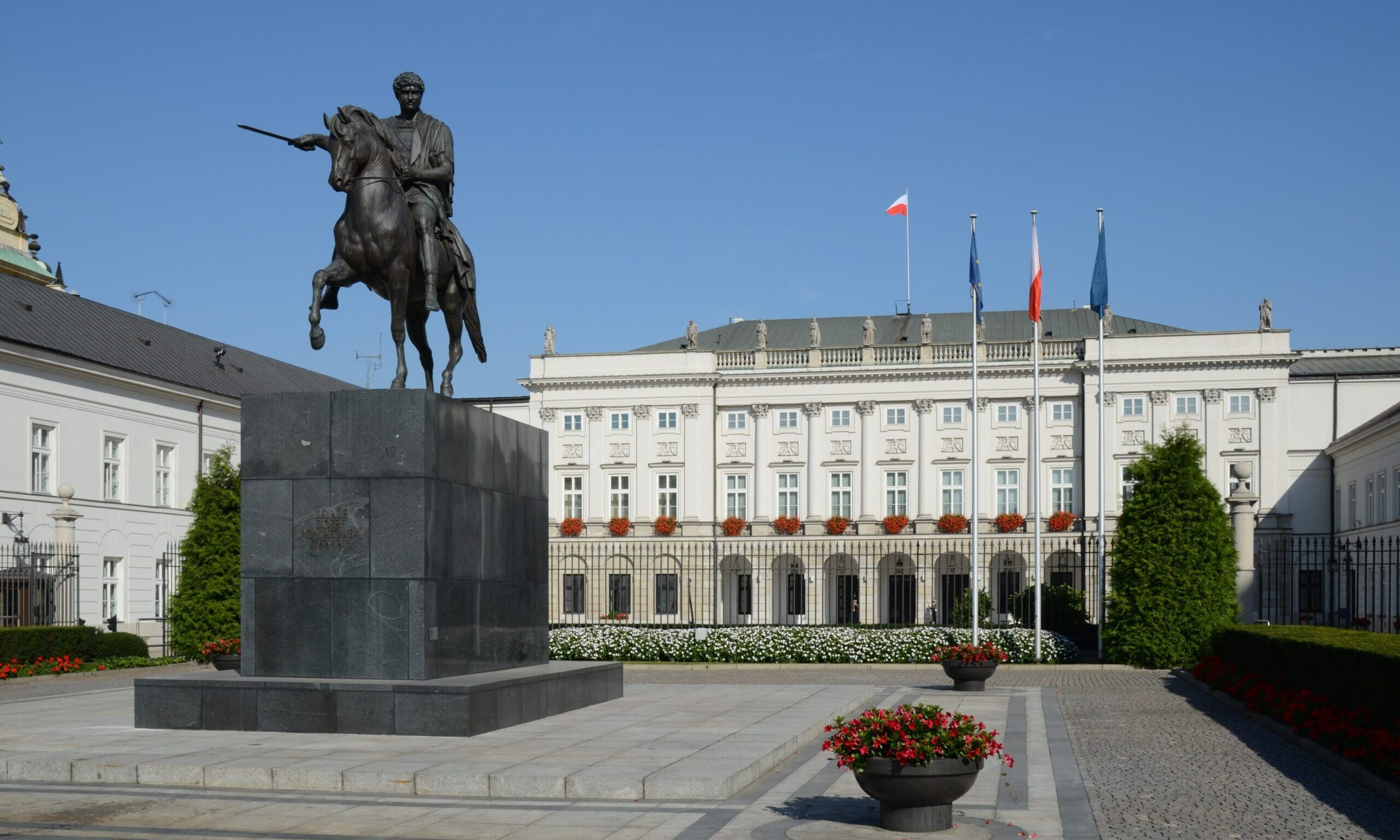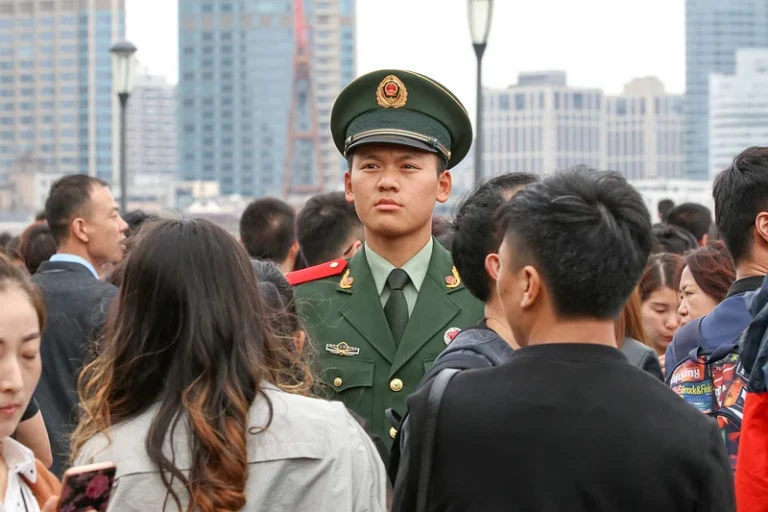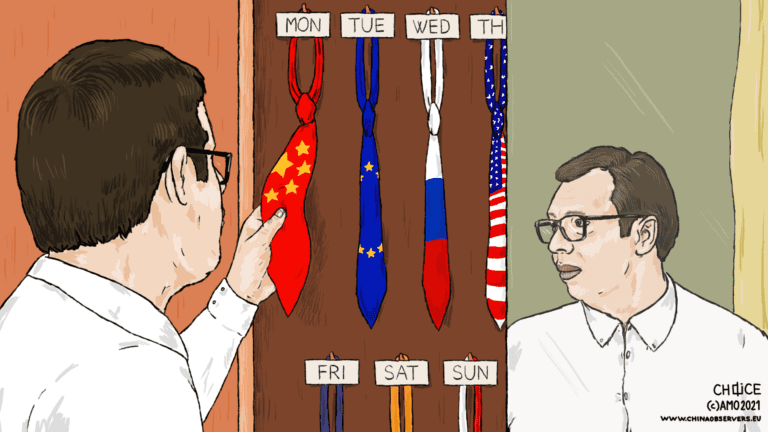
Karol Nawrocki’s victory in the Polish presidential election sheds light on several phenomena in the country’s domestic politics. The urban-rural divide continues to shape voting behavior, with rural and small-town conservatives supporting the president-elect, while progressive and liberal residents of large cities backed his opponent, Rafał Trzaskowski. Additionally, internal rifts within the big-tent October 15 Coalition have not gone unnoticed among voters who have grown increasingly frustrated by the sluggish implementation of reforms announced during the 2023 campaign.
Yet, the implications of Nawrocki’s rise to the presidency for Warsaw’s foreign policy remain significantly more obscure. While candidates addressed their respective visions for Poland’s international posture, they focused squarely on Euro-Atlantic engagements – including the country’s role in the EU, NATO, and the increasingly volatile transatlantic alliance. Relations with China were essentially a non-issue – a stark contrast to recent electoral campaigns in other Central European countries, including Lithuania.
Despite the many unanswered questions, an interrogation of Nawrocki’s stance on Poland’s relations with the Euro-Atlantic community may offer insights into the likely trajectory of Warsaw’s future engagements with China and the broader Indo-Pacific region. The soft Eurosceptic president may embrace one part of the EU’s Global Strategy: “pragmatism,” but without the “principled” component.
Will Soft Euroscepticism Trump Hopes for 27+1?
President-elect Nawrocki’s stance toward the EU exemplifies canonical Polish soft Euroscepticism. He firmly rejects the prospect of EU federalism and instead underscores the urgency of the Polish national interest, advocating a sovereignty-first approach to EU relations. He opposes expanding EU defense competencies, rejecting what he calls efforts to create a “second NATO” and insisting that Poland’s security lies firmly within the existing NATO framework. While supporting Poland’s continued EU membership, he criticized initiatives such as the Green Deal and the migration pact, and called for reforms within the EU. He also emphasized the preservation of national identity and cultural heritage, rejecting the notion that Poland should remain a “province of the EU.” Additionally, he supports regional formats like the Three Seas Initiative, which the right-wing Law and Justice party has previously framed as a counterweight to Berlin and Brussels, and envisions Poland as a leading agent of change in Europe.
During the campaign, Nawrocki’s most prominent mention of China came in a whataboutist attempt to defend his Trumpian “Drill, Baby, Drill!” energy policy. He infamously claimed that China used “30 percent more coal than the total global coal production.” Yet, this was not merely an arithmetical blunder. Instead, it highlighted the centrality of attacks on climate policy in Nawrocki’s agenda, showcasing his framing of coal mining and thermal power generation as pillars of “normalcy.” While the president-elect has not rejected energy transition altogether – he is a supporter of Warsaw’s plans to develop nuclear energy – Nawrocki considers the Green New Deal to be a form of “eco-terrorism” which undermines the Polish national interest. Drilling for “black gold” is, in Nawrocki’s view, essential for “developing the [Polish] Republic.” Therefore, his skepticism toward the EU’s climate policies warrants further consideration when assessing his potential approach toward Beijing. As climate action has emerged as one of the most promising arenas for both constructive cooperation and competition between Brussels and Beijing, Nawrocki’s efforts to derail the bloc’s green agenda could hinder efforts toward consolidating a unified European approach to China.
Indeed, Nawrocki’s skepticism toward deeper European integration – including in areas related to the Common Foreign and Security Policy (CFSP) and Common Security and Defense Policy (CSDP) – raises doubts about Poland’s ability to stay on the course of expanding its leadership within the bloc. Consequently, with Nawrocki at the helm, Warsaw may struggle shifting the bloc toward a more assertive and unified China policy, dampening recent optimism. His “Poland First” approach may limit European progress toward building a shared strategic culture on China – undermining hopes for a coherent 27+1 approach.
Will Hawks Soar Amid Transatlantic Alignment?
While Nawrocki is a soft Eurosceptic, he is also a fervent Americophile – or at least, a close ally of the second Trump administration. Trump himself hailed Nawrocki as an ally after the latter sought to build stronger connections with key figures in the MAGA movement, including the former South Dakota Governor and current Secretary of Homeland Security Kristy Noem. With Washington viewing Asia as its “priority,” Nawrocki’s strong pro-US stance may suggest a willingness to enhance Poland’s own engagement in the Indo-Pacific, aligning Warsaw with Trump’s strategic priorities. This could materialize through increased support for initiatives countering Chinese influence, including efforts to scrutinize China-Russia cooperation, which poses challenges to both Polish and American interests.
However, the unpredictability of the US administration may have a spillover effect on Nawrocki, introducing uncertainty into his potential alignment with the US regarding the Indo-Pacific and China. While the US Congress maintains a relatively consistent stance toward Beijing and supports Taiwan, erratic decision-making at the executive level may lead to inconsistent policies. This volatility could influence Nawrocki’s foreign policy decisions, potentially causing fluctuations in Poland’s stance toward China and Taiwan. Thus, while Nawrocki may seek to strengthen ties with the US and support its Indo-Pacific objectives, the unpredictable nature of US politics may result in a certain degree of volatility in Poland’s foreign policy – at least when it comes to the aspects directed from the presidential office.
Will Nawrocki Reconcile “Common Sense” and Systemic Rivalry?
While the individual vectors of Nawrocki’s policy toward China may flutter, his strong emphasis on Polish national interest and skepticism toward the collective model of global governance offer insights into possible thematic priorities of his outlook on Beijing. With the US retreating from its role as a provider of global public goods – including democracy promotion – and Nawrocki rejecting the EU’s mandate as a rule-maker, it is unlikely that Warsaw will seek to actively address the widening normative gap with China. This further underscores the concerning prospect of growing divergence among EU member states regarding China, with Poland emerging as a possible agent of division, especially on human rights-related issues. Nawrocki’s approach to China is likely to be driven by a consideration of interests in isolation from values – pragmatism without principles. Yet, it remains to be seen whether the allure of lucrative economic deals will outweigh national security considerations.
As a parliamentary republic, Poland still affords its president more than a symbolic role. The head of state holds significant power, including the ability to veto legislation, influence judicial and military appointments, and play a substantial role in directing foreign policy. Indeed, according to Article 133 of the Polish Constitution, the president shares the responsibility for shaping the state’s foreign policy alongside the prime minister and the foreign minister. This is not merely a theoretical consideration – recent examples include outgoing President Duda’s active diplomacy on Ukraine and transatlantic relations, even amid domestic political gridlock. Consequently, it is imperative to watch how Nawrocki – a diplomatic wild card – will seek to shape Poland’s global role beyond the Euro-Atlantic space.
Written by
Marcin Jerzewski
yehaoqinMarcin Jerzewski is the Head of Taiwan Office of the European Values Center for Security Policy. He is also a Marcin Król Fellow at Visegrad Insight. Marcin earned his Bachelor of Arts in Political Science and Chinese Studies at the University of Richmond and was an MOE Taiwan Scholar in the International Master’s Program in International Studies, National Chengchi University.


